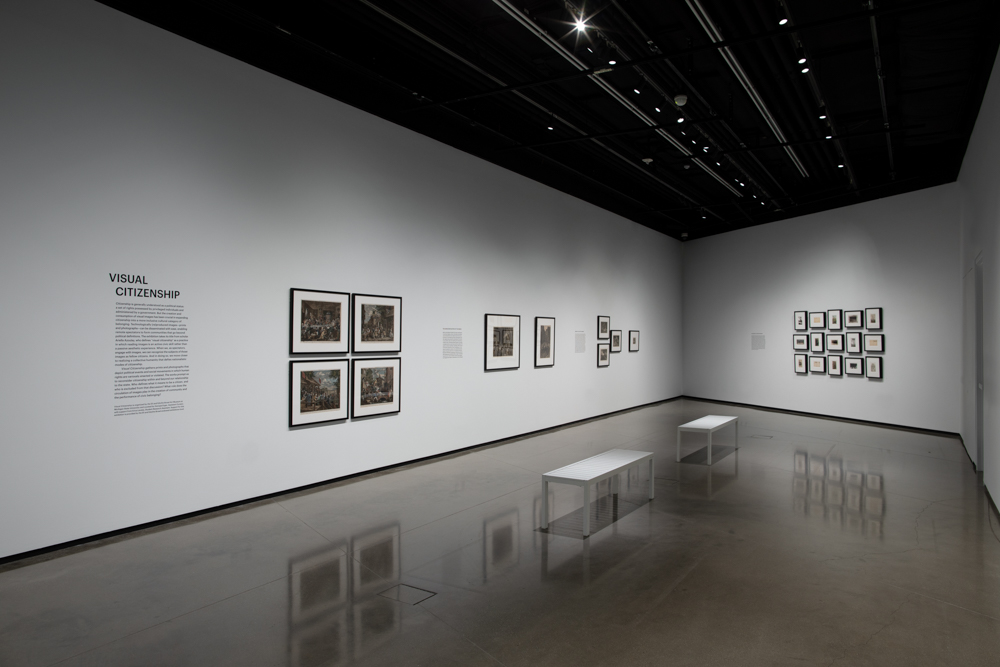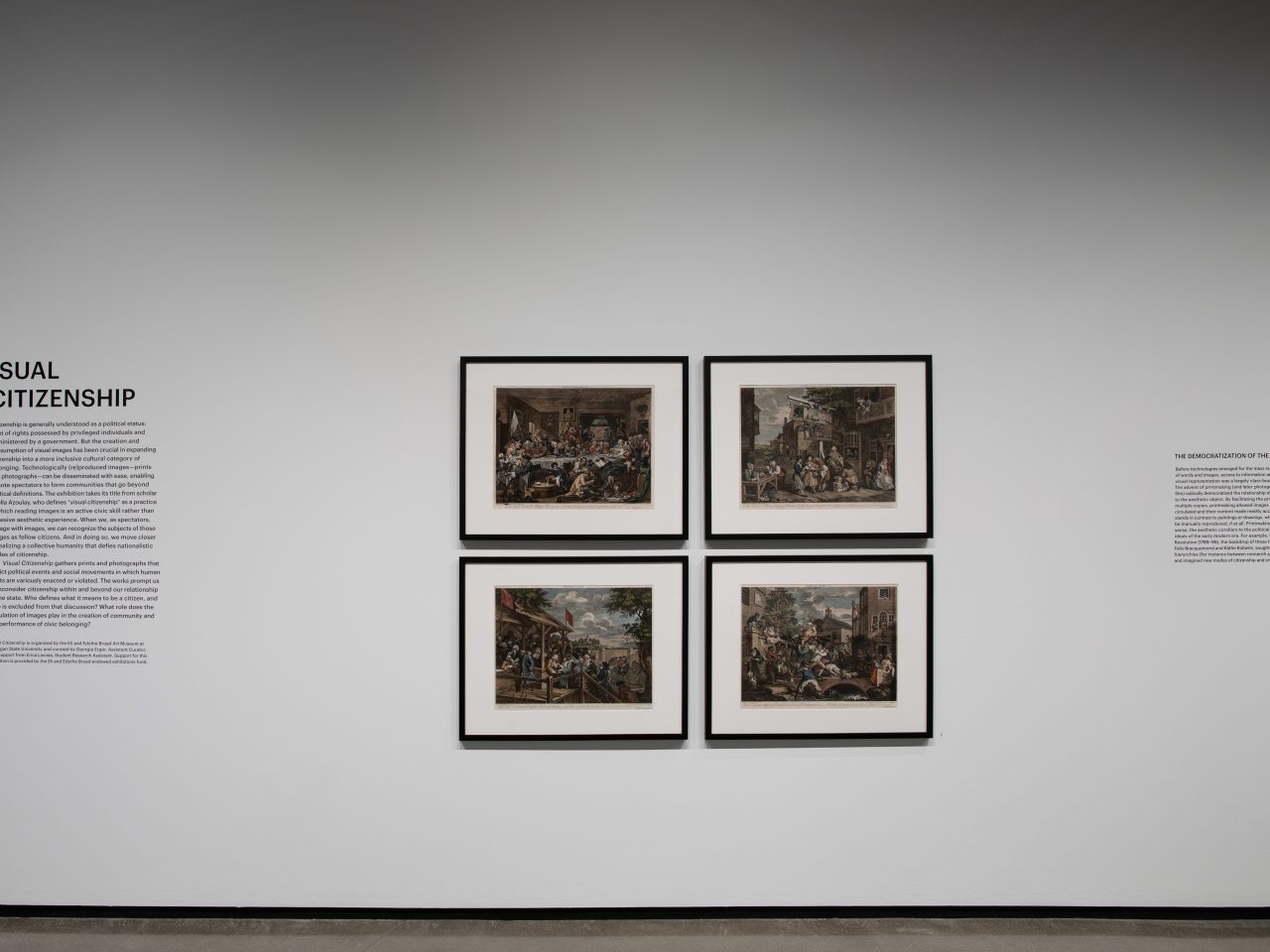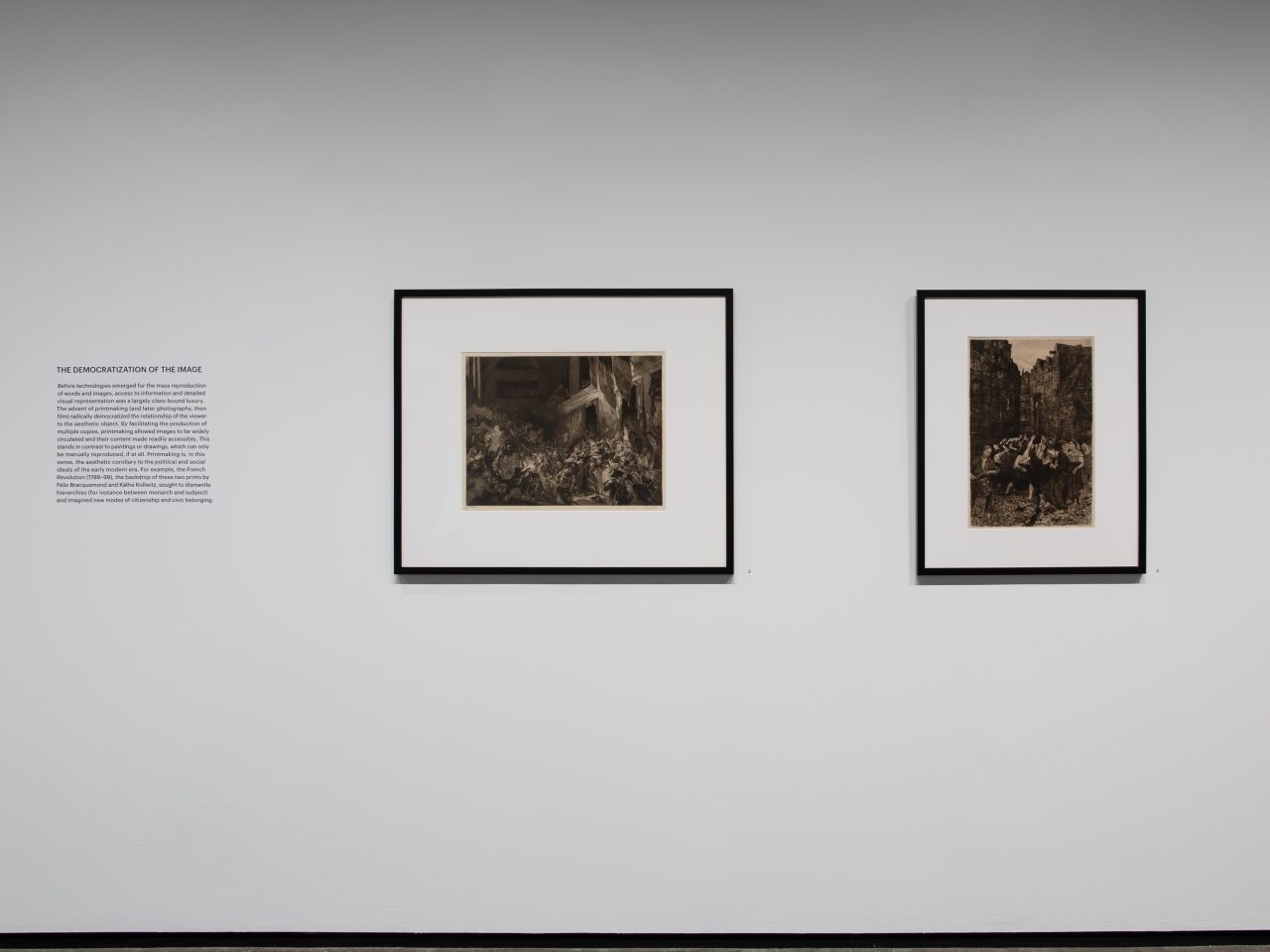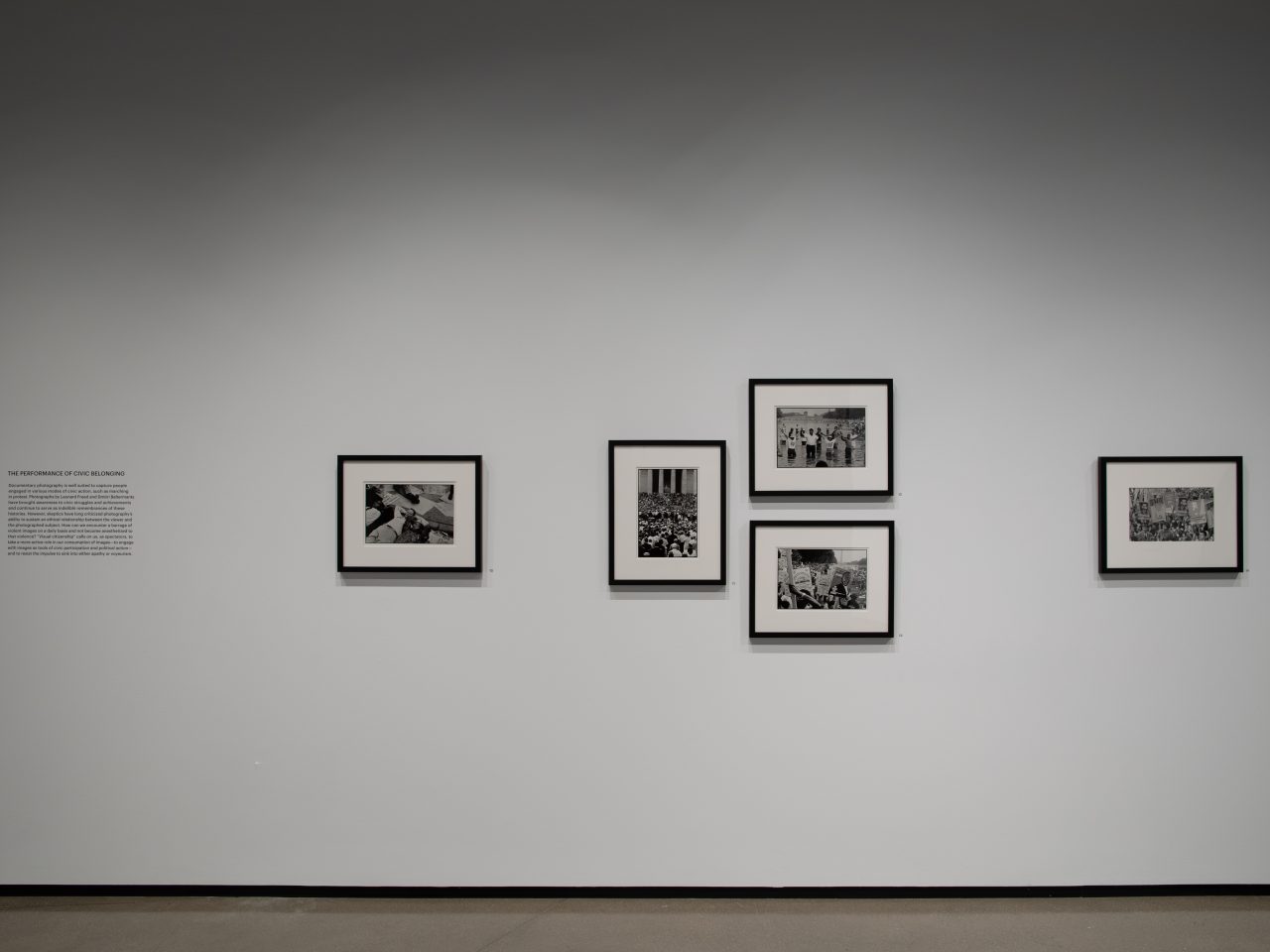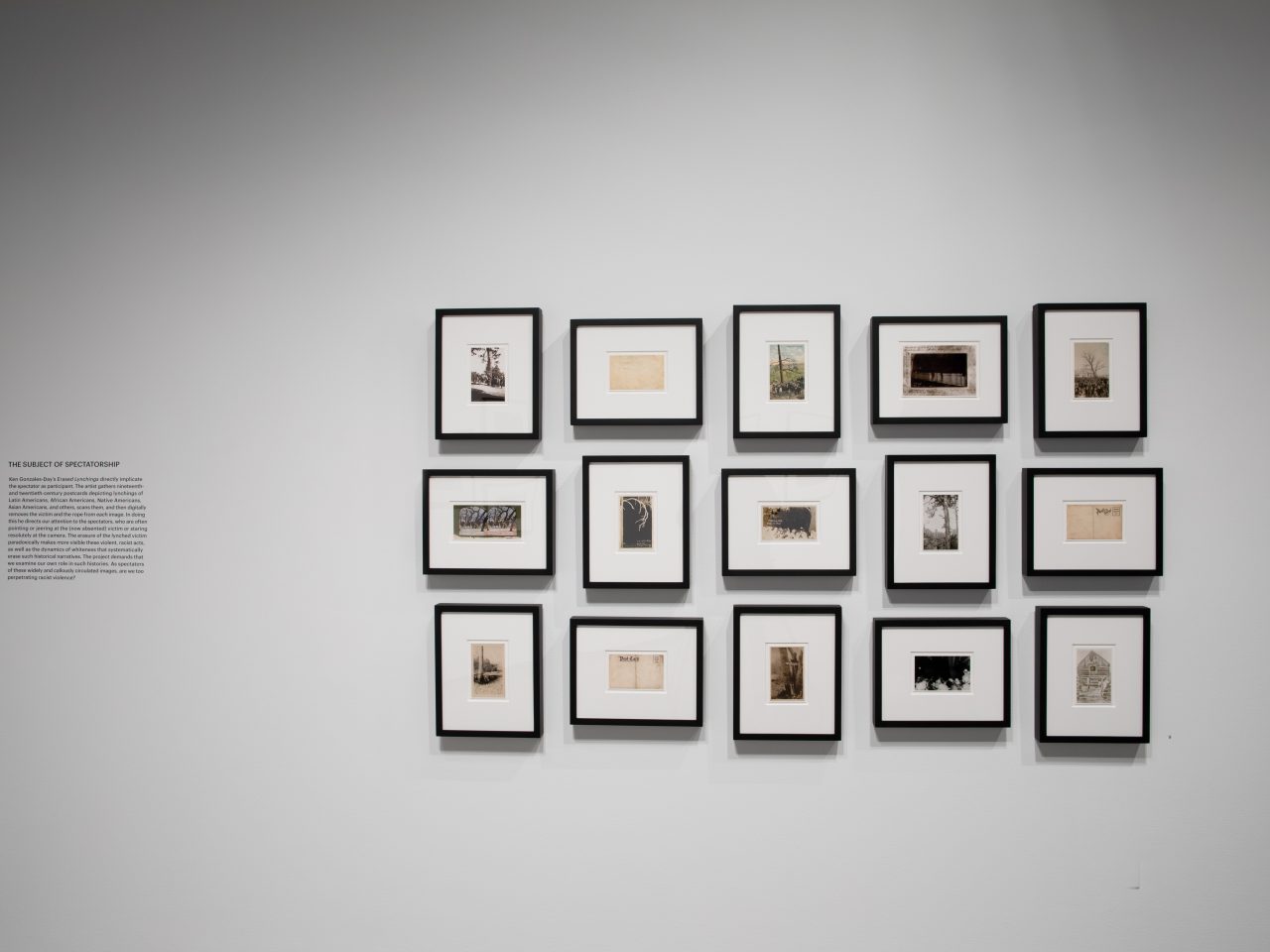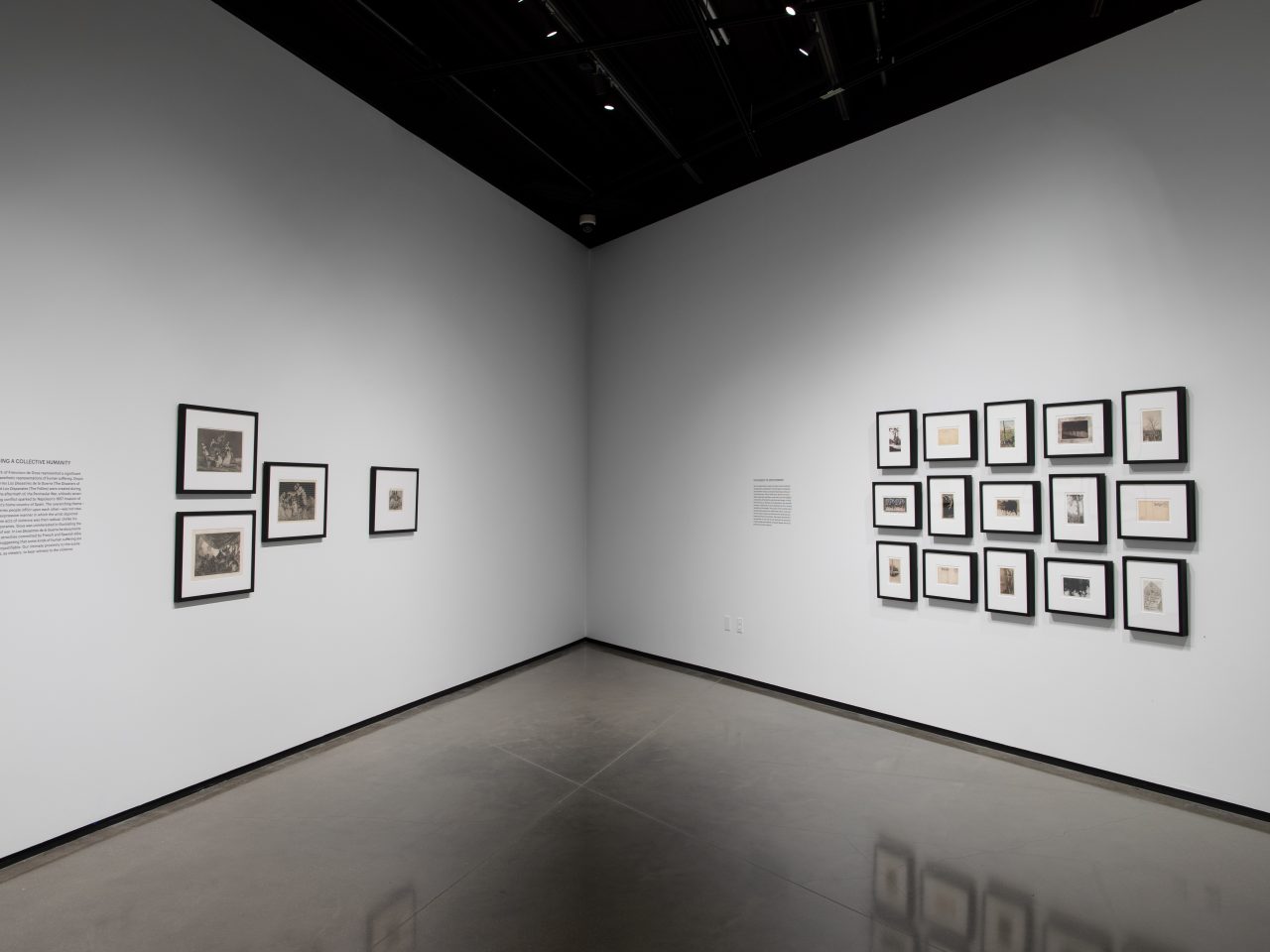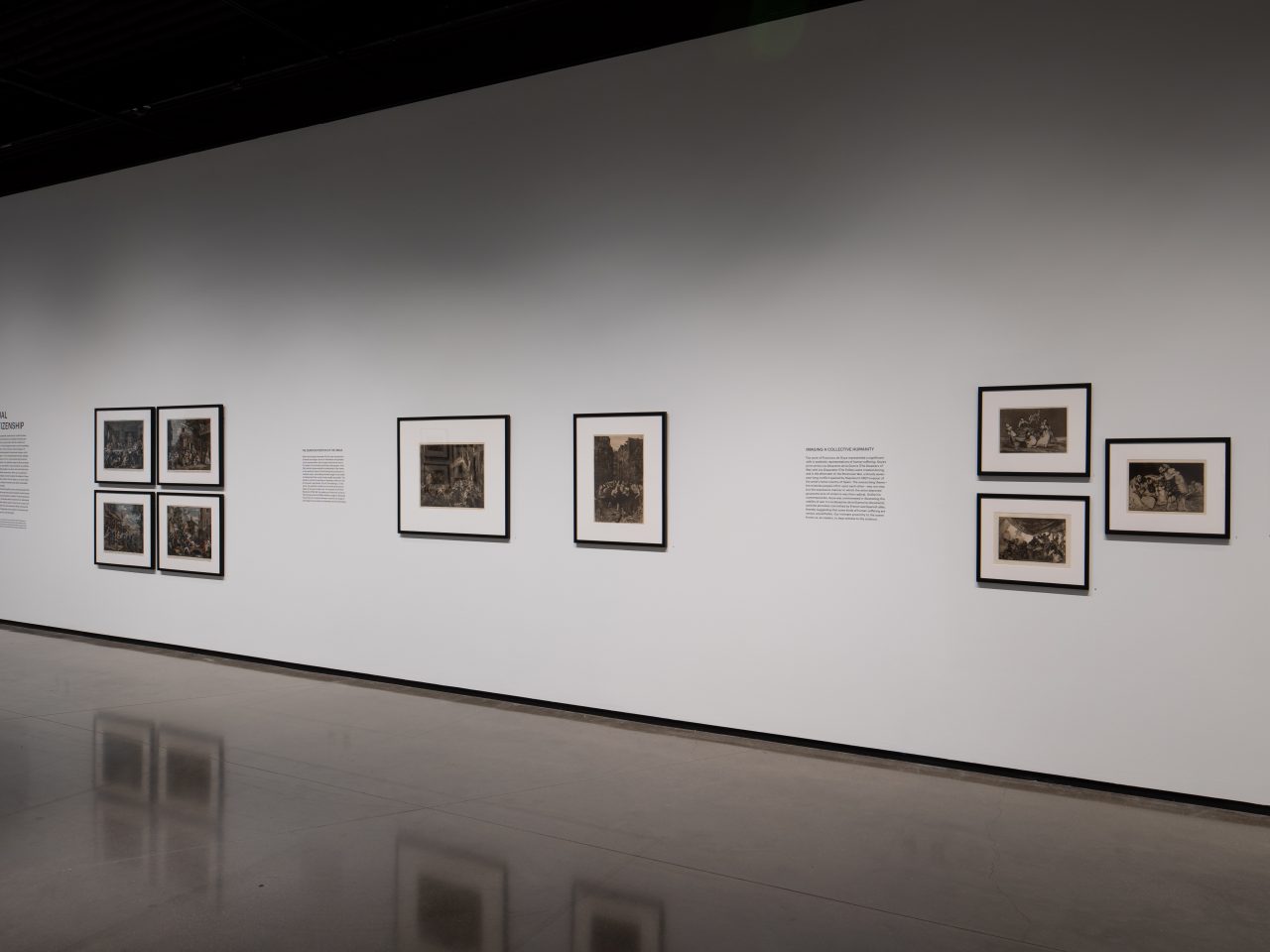Visual Citizenship is organized by the Eli and Edythe Broad Art Museum at Michigan State University and curated by Georgia Erger, Assistant Curator. Support for this exhibition is provided by the Eli and Edythe Broad endowed exhibitions fund.
About the Exhibition
Engage with Visual Citizenship online! Read curatorial text from this exhibition, hear from assistant curator Georgia Erger, and more through a virtual exhibition companion here.
Citizenship is generally understood as a political status: a set of rights possessed by privileged individuals and administered by a government. But the creation and consumption of visual images has been crucial in expanding this rather narrow, legal reading of citizenship into a more inclusive cultural category of belonging. The ease with which technologically (re)produced images—prints and photographs—can be disseminated enables remote spectators to form communities outside of political definitions. Visual Citizenship takes its title from scholar Ariella Azoulay, who defines the term as a practice in which reading images is an active civic skill rather than a passive aesthetic experience. When we, as spectators, engage with images, we can recognize the subjects of those images as fellow citizens. And in doing so, we move closer to realizing a collective humanity that defies nationalistic modes of citizenship.
The exhibition gathers prints and photographs from the MSU Broad collection that depict political events and social movements in which human rights are variously enacted and violated. The works prompt us to reconsider citizenship within and beyond our relationship to state power: Who defines what it means to be a citizen, and who is absented from that discussion? What role does the circulation of images play in the creation of community? Visual Citizenship challenges visitors to engage with images as tools of civic participation and political action.
